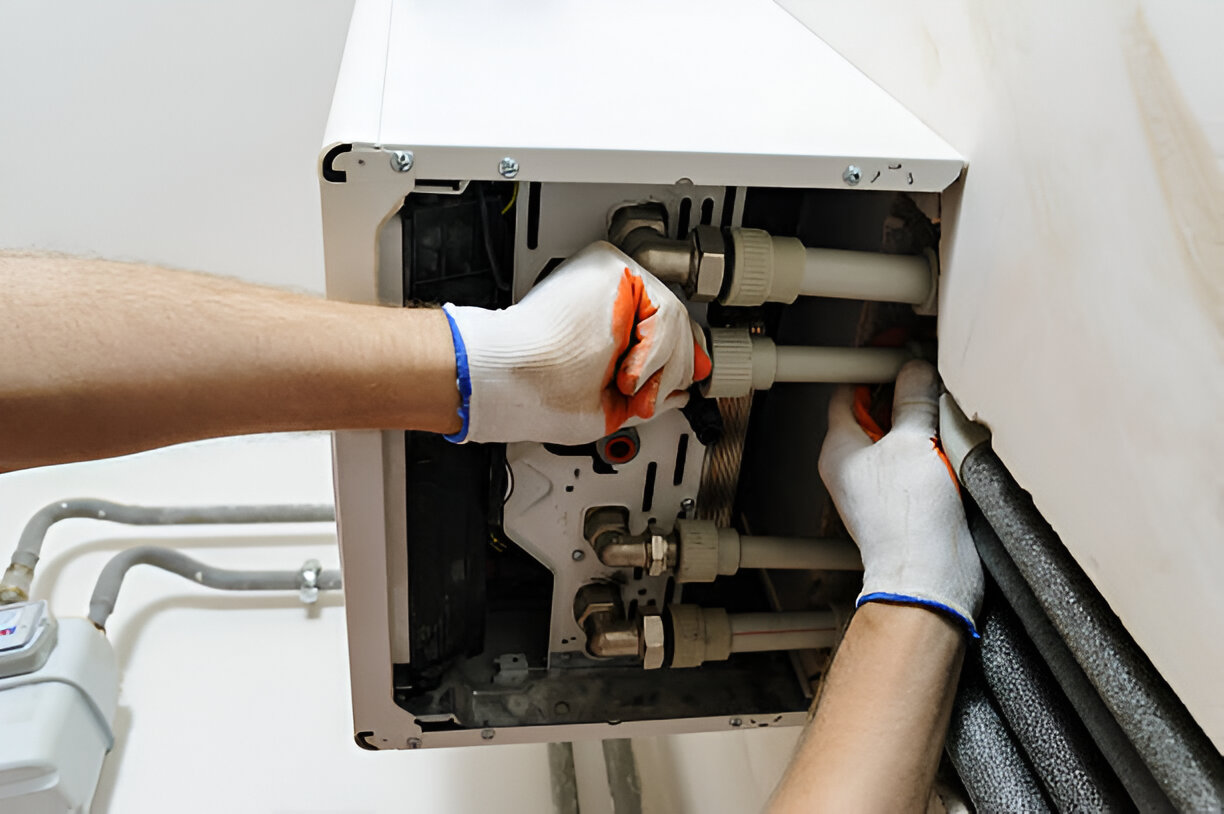
Heating Tune-Up in East Hempfield, PA
A thorough heating tune-up in East Hempfield, PA keeps your home warm, safe, and cost-effective when temperatures drop. With Lancaster County winters that bring cold snaps and heavy use of furnaces, boilers, and heat pumps, a pre-season tune-up identifies worn components, corrects efficiency losses, and reduces the chance of unexpected breakdowns.
Why a heating tune-up matters in East Hempfield, PA
- East Hempfield homes often face large temperature swings and extended cold periods. Systems that sit idle in summer can develop problems that only appear under winter load.
- Older homes and mixed heating systems are common in the area, increasing the likelihood of duct leaks, inefficient combustion, or aging components.
- A tune-up improves safety by checking for gas leaks, carbon monoxide risks, and proper venting—critical in tightly sealed modern homes and older structures alike.
- Efficiency gains from a professional tune-up typically lower energy usage and maintain consistent indoor comfort during peak usage.
Common heating systems and issues in East Hempfield
- Furnace tune-up East Hempfield: dirty burners, clogged filters, worn blower motors, failing ignition systems, and cracked heat exchangers.
- Boiler tune-up East Hempfield: low water pressure, corroded fittings, faulty circulator pumps, air trapped in zones, and scaling on heat exchange surfaces.
- Heat pump tune-up East Hempfield: refrigerant charge balance, reversing valve operation, defrost cycle function, and compressor start-up performance.
- Thermostat problems: inaccurate temperature readings or poor programming that leads to short cycling or overrun.
- Duct-related issues: reduced airflow from leaks, poor insulation, or blocked returns, which reduce efficiency and comfort.
What a complete heating tune-up includes
A professional heating tune-up is a systematic, safety-first inspection and tune to restore optimal performance. Key elements include:
- Safety and combustion checks
- Inspect flue, venting, and draft for obstructions or backflow risk.
- Test for carbon monoxide presence and verify safety control operation.
- Check gas lines and connections for leaks and proper pressure.
- Electrical and control inspection
- Tighten and test electrical connections, relays, and capacitors.
- Verify thermostat calibration and program settings; replace batteries if needed.
- Confirm proper operation of limit switches and safety cutoffs.
- Component cleaning and lubrication
- Clean burners, pilot assemblies, flame sensors, and ignition components.
- Remove dust from blower wheels and motors; lubricate bearings when applicable.
- Flush or descale boiler heat exchange surfaces when buildup is detected.
- Airflow and filtration
- Replace or inspect filters and advise on the correct MERV rating for your system.
- Measure airflow and check return path; identify duct leaks and restrictions.
- Performance tuning and efficiency adjustments
- Adjust burner settings and gas pressure for balanced combustion and maximum efficiency.
- Verify and optimize blower speeds, fan timings, and cycling behavior.
- For heat pumps, check refrigerant levels, reversing valve, and defrost controls.
- Minor repairs and wear-item replacement
- Replace worn belts, filters, igniters, flame sensors, and capacitors as needed.
- Tighten motor mounts, adjust belt tension, and correct blower alignment.
- Top off boiler pressure, bleed radiators or zones, and test circulator pumps.
Diagnostic process: what professionals look for
During a tune-up technicians use visual inspection, measurement tools, and testing to pinpoint issues:
- Combustion analysis on gas-fired systems to measure CO, CO2, and combustion efficiency.
- Voltage and amperage checks on motors and compressors to identify weak starts or failing components.
- Static pressure and airflow measurement to confirm duct performance and detect blockages.
- System cycling observation to spot short cycling, overheating, or delayed ignition.
- Thermal imaging or visual inspection of heat exchangers and piping for cracks, corrosion, or leaks.
Typical minor repairs handled during a tune-up
Many tune-up appointments resolve small problems on the spot, reducing the chance of mid-winter failure:
- Replacing air filters, flame sensors, or igniters.
- Tightening electrical connections and switching out failing capacitors or relays.
- Cleaning and adjusting burners and pilot assemblies.
- Bleeding boiler zones, topping off pressure, and refilling expansion tanks.
- Reprogramming or recalibrating thermostats for accurate set points and energy savings.
- Securing or sealing minor duct leaks and adjusting dampers for better airflow balance.
Benefits you’ll notice after a tune-up
- Increased system reliability and fewer emergency repairs during cold weather.
- Improved energy efficiency and more consistent heating—often reflected in lower fuel or electric bills.
- Enhanced safety with reduced risk of carbon monoxide exposure or hazardous fuel leaks.
- Longer equipment life due to reduced wear from proper adjustments and clean components.
- Better indoor comfort with fewer cold spots, more even temperatures, and quicker recovery after setbacks.
Recommended follow-up and maintenance schedule
- Annual heating tune-up before the first major cold snap is strongly recommended for furnaces, boilers, and heat pumps in East Hempfield homes.
- For older systems or homes with multiple zones, consider semi-annual checks: one before heating season and one mid-season to catch developing issues early.
- Keep a record of maintenance and any parts replaced; this supports warranty claims and helps technicians track wear patterns.
- Consider a maintenance plan that includes scheduled inspections, priority service, and seasonal performance checks to maintain peak efficiency and predictable budgeting.
A targeted heating tune-up in East Hempfield, PA protects comfort, safety, and the long-term value of your heating equipment. By focusing on safety checks, component cleaning, efficiency adjustments, thermostat calibration, and minor repairs, a professional tune-up prepares your home to handle Lancaster County winters with confidence. Continuous, predictable performance starts with consistent preventive maintenance.


Enjoy flexible financing options that make upgrading or repairing your HVAC system easy and budget-friendly.










